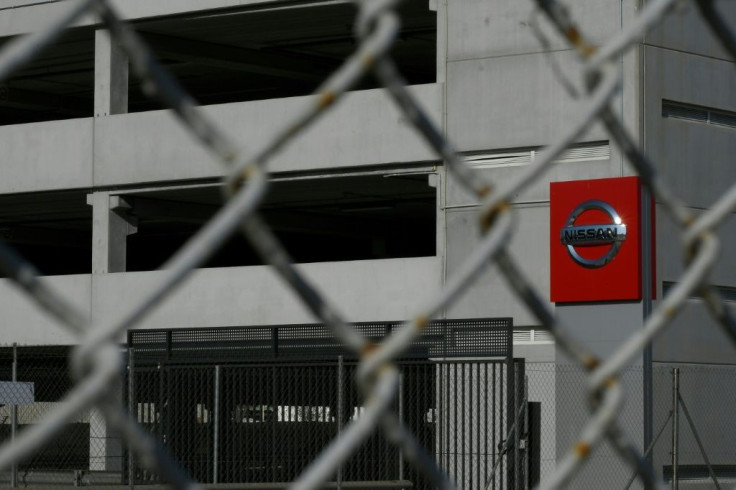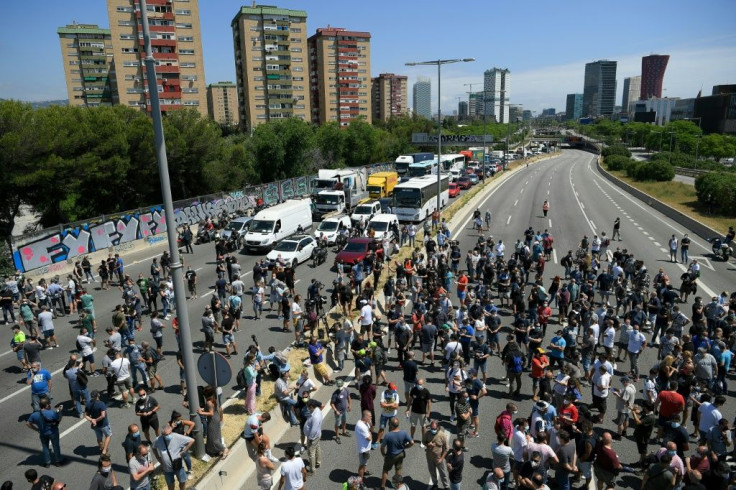Spain Says Nissan Closing Barcelona Factory

Japanese carmaker Nissan has decided to shut its factory in Barcelona where 3,000 people are employed after four decades of operations, the Spanish government said on Thursday.
The decision came despite government efforts to keep the plant open, Foreign Minister Arancha Gonzalez Laya told the national radio station.
"We regret this decision by Nissan to leave not just Spain but Europe... to concentrate its business in Asia, despite the enormous efforts by the government to keep the business going," she said.
Spain is one of the countries worst hit by the coronavirus fallout, a context that particularly stoked anger among workers at the Barcelona plant.
"It's shameful that a multinational company like this one would drop us in the middle of the COVID-19 pandemic," said 54-year old Jordi Carbonell who has been with Nissan for 32 years.
Carbonell said he had felt "cheated" by management in recent years. "No production site is profitable without a sufficient production volume and here they just let it die," he said.
Spain's car industry is the European Union's second-biggest after that of Germany, accounting for 10 percent of the country's gross domestic product.
With Brexit, the Barcelona site became Nissan's main one in the European Union. The Japanese company runs a bigger production facility in Sunderland in Britain.

In addition to 3,000 direct jobs, some 22,000 more depend indirectly on the site, according to unions.
The industry ministry confirmed to AFP that Nissan's chief executive had informed it of plans to stop operations at the Barcelona site, which groups several production facilities.
Production there had already ground to a halt at the start of the month when some staff went on strike demanding an investment strategy for the site after plans were announced to cut 20 percent of the workforce.
Foreign Minister Gonzalez Laya said "all kinds of help" had been proposed to Nissan in the run-up to Thursday's decision and that the government would "not throw in the towel".

The head of Nissan's European operations, Gianluca de Ficchy, said "all that support was taken into account in order to have an overall economic equation going forward".
Nevertheless, "we've reached the conclusion that the overall economic equation for the plant was not sustainable going forward," he added.
But Gonzalez Laya said Spain would "explore all solutions, because our concern is to safeguard employment".
She did not rule out the possibility of finding a buyer for the plant.
Economy Minister Nadia Calvino meanwhile said the government had invited Nissan to start talks "to see how this process could be managed", to no avail.
The Madrid government has argued that the cost of closing Nissan's Barcelona operation, which it put at more than one billion euros ($1.1 billion), was higher than the investment needed to keep it going.
Some workers at the Barcelona site blamed Nissan's alliance with French carmaker Renault, concluded in 1999, which union representative Pedro Ayllon said had made Nissan "a secondary partner" in Europe.
"Since then we have been given the production of vehicles with low production numbers, the ones that the others didn't want to make elsewhere," he said.
Nissan's Barcelona plant currently makes mostly SUVs and pickup trucks, as well as electric minivans.
Its capacity is around 200,000 units per year, but that had been reduced by a third even before the coronavirus pandemic.
A decade ago, when the site was already in difficulty following the global financial crisis, it was kept going partly in exchange for wage cuts for staff.
"Workers make sacrifices in return for broken promises," said Ayllon.
Juan Sanchez, a 45-year-old worker in the paint shop whose partner also works at the plant, said the virus context made it particularly hard for the couple, parents of two daughters, to soon be out of a job.
"With COVID-19 we can't find another job, not while there are so many job cuts in other companies," he said.
© Copyright AFP 2024. All rights reserved.





















